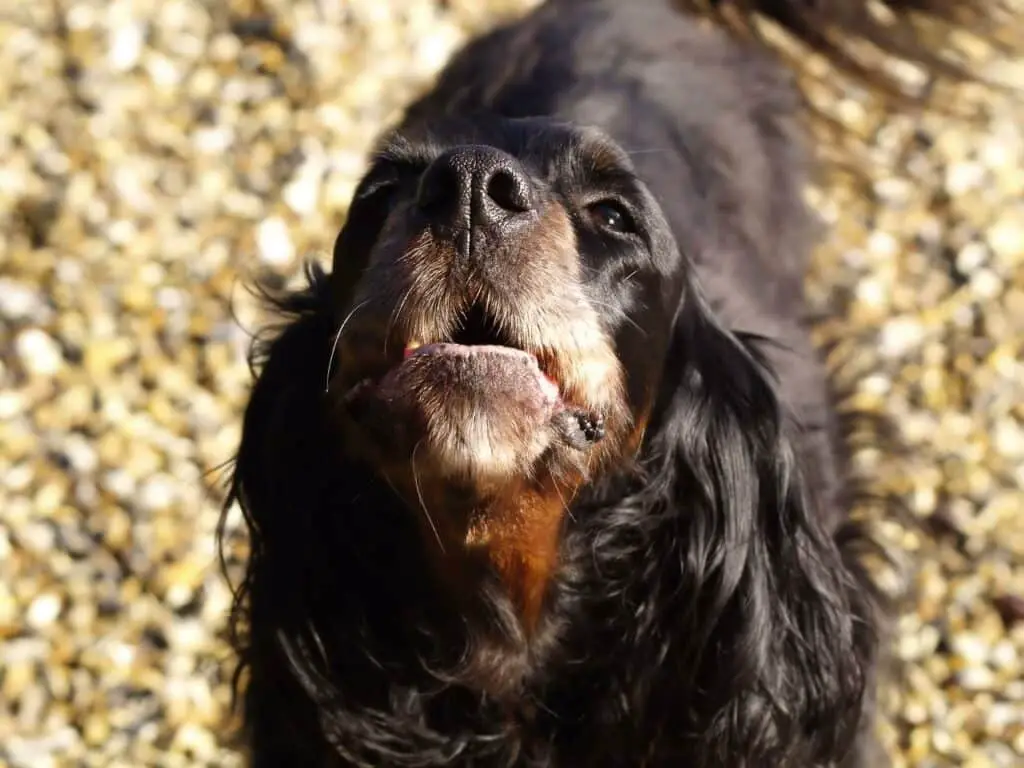Nothing beats the feeling of munching on orange bell pepper slices as you chill out with your furry best friend.
In this scenario, the chances of sharing these fruits with them are pretty high.
However, you may be wondering if this snack is safe for your pooch or not before doing so.
So, can dogs have orange bell peppers?
Yes.
Orange bell peppers are a nutritious treat for dogs.
They are rich in vitamins that promote dogs’ immune systems and minerals, enhancing your pup’s bone health.
That said, you should follow some guidelines like cutting the peppers into smaller pieces before feeding your pup to avoid choking and upsetting their stomachs.
This article discusses the benefits of orange bell peppers to dogs.
Additionally, are instructions on how to prepare and feed these treats to your furry best friend.

Health benefits of orange bell peppers to dogs
Orange bell peppers are rich in potassium, manganese, magnesium, and vitamins A, C, B6, and K.
Below are the benefits of these supplements to dogs’ bodies.
Vitamin C – This supplement promotes dogs’ immune systems and fights cardiovascular and eye diseases. It will also enhance your furry friend’s coat when ingested.
Vitamin A – Intake of vitamin A lowers the risk of dogs contracting certain cancers and supports their eye and bone health.
Vitamin K – This vitamin is essential in blood clotting. It also manages the calcium levels in your four-legged friend’s blood.
Vitamin B6 – Aside from improving these canines’ nervous systems, vitamin B6 also aids hemoglobin production and reduces your pooch’s chances of contracting anemia.
Minerals – These fruits are rich in minerals like manganese, magnesium, and potassium, which promote bone health in dogs, making them strong and steady.
Betacarotene – Besides enhancing your canine’s coat, this antioxidant enhances bone development and develops their reproductive system.

How many orange bell peppers are safe for my dog?
Like all other human foods, your puppy should indulge in orange bell peppers in moderation.
That said, the safe amount of orange bell peppers for your pup depends on their size.
Large dogs should not eat more than one-half of these fruits.
On the other hand, small dogs like Pomeranians might suffer stomach upsets if they eat more than a quarter orange bell pepper at a time.
When introducing these fruits to your four-legged friend, start with tiny amounts and watch out for reactions before continuing.
This is because some dogs may be allergic to bell peppers.
How to feed orange bell peppers to dogs
The following are safe ways of feeding orange bell peppers to your four-legged best friend.
Cut the orange bell peppers into smaller pieces
These fruits have tough skins that may be challenging for your pup to chew because their dental formula is designed to eat meats, not vegetables and fruits.
Make it easier for them by cutting the peppers into sizes they can easily crush.
Blend
Secondly, you could make a puree by blending or mashing the peppers.
This prevents dogs from choking on these fruits and getting stomach complications like diarrhea as they will be easier to digest.
Cook
Cooking softens orange bell peppers, making them easier for dogs to chew.
However, it’s advisable to cook these fruits separately from your food.
This is because your food may contain substances that are toxic to dogs, like onions and garlic.
Fill the peppers with dog food
Another way of feeding these fruits to dogs is by stuffing them with other foods.
However, ensure that all the stuffing contents are dog friendly to avoid causing your pup health complications.
How to introduce orange bell peppers to dogs
Follow the guidelines below to ensure your four-legged friend feeds properly.
- Feed them gradually – Start by feeding your pooch tiny amounts of bell peppers and watch out for reactions like allergy flare-ups before progressing. Then give it to them in moderation as excess intake of these fruits could cause diarrhea and vomiting.
- Switch up preparation method – Bell peppers can be cooked, pureed, or steamed for these canines. Switching up these preparation methods will prevent your pooch from getting bored of eating these fruits.
What to do if my dog accidentally feeds on excess bell peppers
The first thing you should do if your four-legged friend feeds on excess bell peppers is to keep them hydrated.
This is because dogs may vomit or have diarrhea to expel the excess fruits and thus become dehydrated.
Secondly, contact the vet If your dog’s condition worsens.
In this case, the vet may ask you to take your pup to the clinic or give advice on some home remedies.
That said, examples of foods that can help settle dogs’ stomachs include canned pumpkins and bananas.
Frequently asked questions(FAQs)
Can my dog eat raw orange bell peppers?
It’s safe for dogs to eat these fruits raw.
However, remove the seeds before feeding them as they are hard to digest.
Does the color of a bell pepper matter?
The colors of peppers matter as different shades have varying amounts of nutrients.
For instance, red bell peppers are the most nutritious as they contain the highest amounts of antioxidants and vitamins.
However, none of these fruits are toxic to dogs.
Are hot peppers safe for my dog?
Dogs should not eat spicy or hot peppers as they might cause them to suffer from diarrhea or a burning mouth.
These peppers also cause various digestive problems in dogs if ingested in high amounts.
Can my dog eat jalapeno peppers?
These canines should not indulge in jalapeno peppers.
Dogs have sensitive stomachs and thus might showcase symptoms like poor appetite and vomiting if they ingest these peppers.
Conclusion
Dogs can eat orange bell peppers.
However, avoid feeding them this fruit in high amounts as it could cause them to suffer from stomach upsets.
Remember to cut the orange peppers into small pieces to prevent your pup from choking on them.
- What Dog Breeds Have Pink Skin? - March 24, 2023
- What Are the Most Inspiring Dog Breeding Quotes? - March 20, 2023
- Can Pheromone Spray Help Improve Dog Breeding Results? - March 19, 2023








